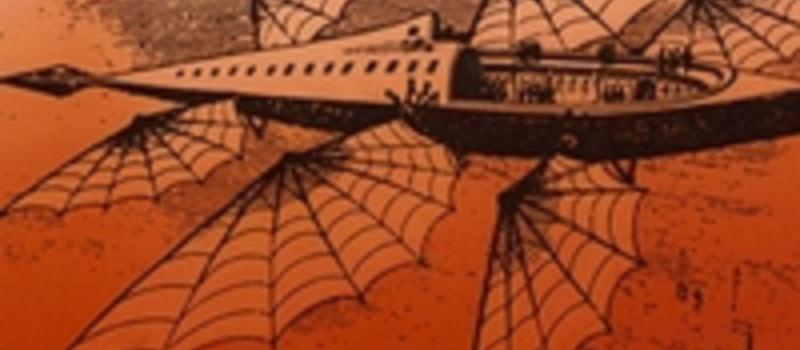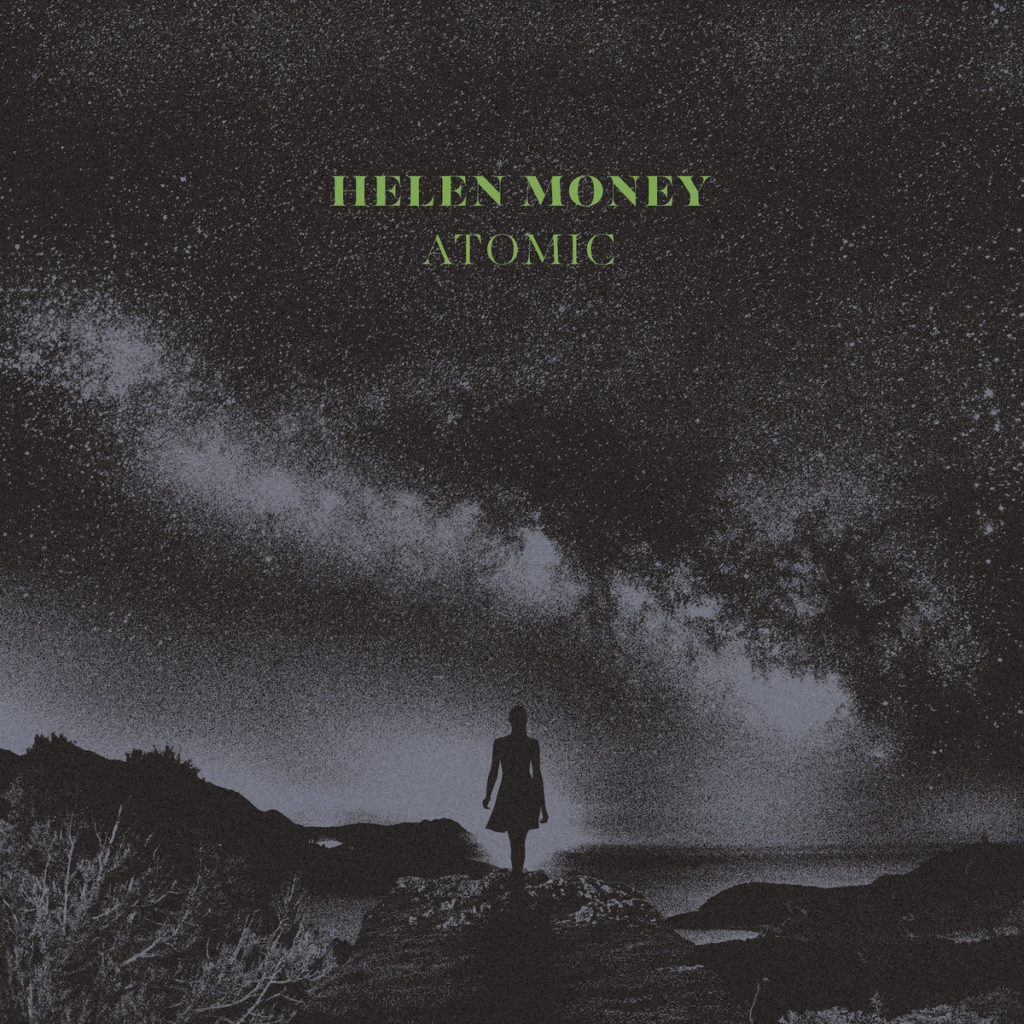Every once in a rare while, after sifting through mountains of half-hearted indie-pop offerings and sophomoric verse-chorus-verse chatter, we music writers stumble upon a record that reminds us of why we do what it is we do. These little reminders are records that push boundaries and twist genres, that speak in terms we never quite anticipate, that resonate on an emotional level as much as they speak to technical prowess or invention. Songs for the Forgotten Future Vol. 1, the full-length debut from the Brooklyn-based quintet Piñataland, is one of these rare and wonderful records.
Self-released through the band’s Mekkatone Records, Songs for the Forgotten Future Vol. 1 wanders through 10 historical events of the last 150 years — some renowned, some obscure — while crafting atmospheric song-stories with an eclectic range of musical styles. The band member’s ambitions are clearly quite high: they’re providing a soundtrack, which borrows from scores of cultures and musical epochs, to a timeline that never quite happened. What’s more surprising than the premise of the record is the fact that Piñataland pulls it off again and again, constantly amazing the listener with the depth and color of its history lesson.
Trying to describe the sound of that history lesson, however, is no easy task. Songs for the Forgotten Future Vol. 1 may have its foundations in Americana and roots music — yes, yes, acoustic and pedal steel guitars are prominent throughout — but the band is more than just waiting to be discovered by Mr. Lomax or T. Bone Burnett.
Over the course of 10 songs, Piñataland defines itself with a strange hybrid of genres and styles, displaying a knack for — among other things — elegiac chamber pieces, mutated pop tunes with accordion, tuba and piano, carnivalesque anthems, and cinematic soundscapes, many of them hinting at popular music of decades and decades past. Adding another layer of dimension to the record are archival sound samples in each song that thematically link Piñataland’s musical snapshots with the historical moments it is working to capture.
The band begins forgetting the future and returning to the past with “Gramercy Ball,” a reflection on the stock market crash of 1929 that shifts from a quiet country-western ballad to a larger full-band exercise with multiple guitars, weeping violins, piano, and accordion. It is followed with the quirky, old dance-hall rhythms of “Devil’s Airship,” where cryptic lyrics (“I saw the sky crack wide open / We’re heading for the ocean / I’ll take you to a place where there’s no rain”) mix with occasionally ominous offerings from organ, violin, and accordion.
On other tracks, the listener can hear the music not necessarily mixing into an oddly cohesive whole, but swaying gently from genre to genre. For example, “Sleepwalker” — which looks at the building of the United States’ trans-continental railroad — is driven by a violin that somehow walks the line between Middle Eastern scales and the rhythmic fiddling of Western swing.
After the pitch-perfect country waltz of “Velocity,” Piñataland moves into two of the finest tracks on the record. “1939” starts with a field recording of FDR opening the 1939 World’s Fair and carries the president’s sense of boundless optimism about the future through catchy, foot-tapping verses that sound as if a musician like Ben Folds fronted the jazzy Tin Hat Trio. Then comes “Ota Benga’s Name,” the bounciest track on the disc, which deals with an African boy who was put on display in a monkey’s cage at the Bronx Zoo in the early years of the 20th century. The track slaps the wrists of those involved, but also displays an oddly upbeat and highly addictive swing and swagger. Of particular note is a breakdown mid-song that is vintage Danny Elfman, all of the instrumentation falling away to make room for a spoken rant that gradually rises, rises, rises, with violin in tow, back into a musical crescendo.
After the instrumental “Overture: Beautiful New World Jail,” the band launches into “Flying Down to Moscow,” which initially hints at a folksy ballad with acoustic and pedal steel that would impress Calexico, but then transforms into a heavily Russian-influenced number. With a sound that could be stripped from some old musical cylinder, the band sings a tribute to a pilot who flew a Cessna from Helsinki right into Red Square in 1987: “I want to know / What it means to be free / Under radar / That curtain will rise for me.” The band captures a similar patchwork of ethnic tones on “Good Days,” which mourns the transformation of East Tremont, N.Y., a neighborhood plowed under by the building of the Cross-Bronx Expressway in the 1950s.
The record ends on an absolutely perfect note, with the atmospheric and grandiose weeping of “Latvian Bride,” a rumination that seems to reprise and build upon the best musical moments of the songs that precedes it. The closing half of the eight-minute track is heart wrenching — not a note’s out of place and some of them will knock you right over — and the perfect way to pull down the curtain. When the band sings amid the moan of violin and cello, “But outside there’s a world where the laws of physics apply / But under the Florida moon the rocks are alive,” you can’t help but realize the history Piñataland is writing — for all of the optimism and adventure — has its share of heartbreak.
The combination of hope and tragedy is reminiscent of Neutral Milk Hotel’s majestic In the Aeroplane Over the Sea. But where Jeff Magnum tugged on heartstrings primarily through the use of acoustic guitar and voice, Piñataland is working on a much, much larger scale. This isn’t an inventive indie band looking to create a new masterpiece in a sub-genre of the singer-songwriter. This is an act that seems to be calling on a countless amount of influences and crafting something strange and beautiful from a musical past that we seem to have forgotten … or never knew in the first place.
The bottom line: on its first step out of the gate, Piñataland has proven itself an incredible musical force. Songs for the Forgotten Future Vol. 1 is nothing less than a masterpiece. Well, what more can a music writer say about a record that knocks you off your feet like this? – Delusions of Adequacy, Sept. 22, 2003
-30-




